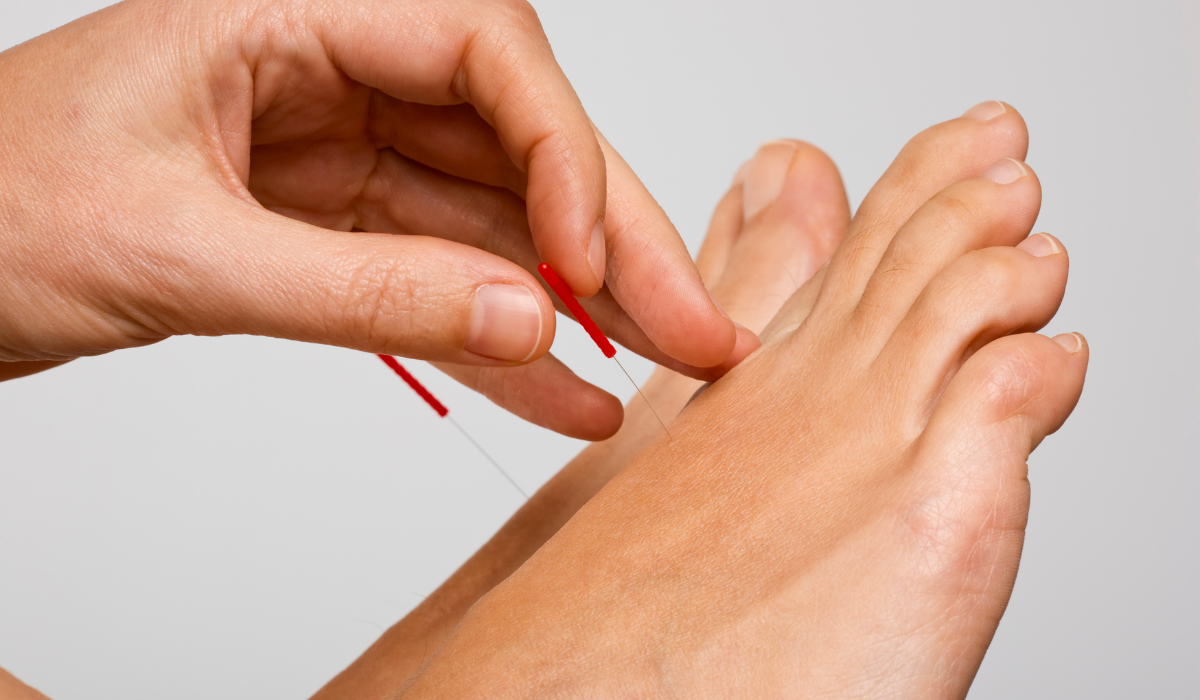If you’re suffering from back pain, you may be interested to learn how acupuncture can potentially provide relief. Acupuncture is an ancient Chinese healing practice that involves the insertion of thin needles into specific points on the body. It is believed to stimulate the flow of energy, known as Qi, and promote natural healing processes. Many individuals have found acupuncture to be effective in managing their back pain by reducing inflammation, relieving muscle tension, and improving overall well-being. In this article, we will explore how acupuncture works and its potential benefits for treating back pain.

What could be causing my back pain?
There are several potential causes for back pain. It could be due to muscle strain or sprain, which commonly occurs from overuse, poor posture, or lifting heavy objects. Degenerative conditions such as arthritis or herniated discs can also lead to back pain. Other possible causes include spinal stenosis, osteoporosis, scoliosis, or even underlying medical conditions like kidney stones or infections. Stress, lack of exercise, and obesity can contribute to back pain as well. It is important to consult a healthcare professional to accurately diagnose and determine the specific cause of your back pain.

How long will it take for my back pain to go away?
The duration for your back pain to go away depends on various factors such as the underlying cause, severity of the pain, and the treatment approach you take. In many cases, acute back pain can resolve within a few days to a few weeks with rest, pain medications, and home remedies like hot/cold therapy or gentle exercises. However, my back hurts chronic back pain may require more extensive treatment and management options, which could take several weeks to months for noticeable improvement. It is advisable to consult with a healthcare professional who can assess your specific condition and provide a more accurate estimation of the timeframe for your back pain to improve.
Are there any specific exercises or stretches I can do to alleviate my back pain?
There are several exercises and stretches that can help alleviate back pain. Some examples include the cat-camel stretch, where you get on all fours and arch your back up and down; the child’s pose, where you sit back on your heels and reach your arms forward; and the knee-to-chest stretch, where you lie on your back and bring one knee towards your chest, holding it with both hands. These exercises and stretches help to improve flexibility, relieve tension, and strengthen the muscles in the back, ultimately reducing back pain. However, it’s important to consult a healthcare professional or physical therapist who can provide personalized recommendations based on your specific condition.
Should I see a doctor or specialist for my back pain?
If you are experiencing back pain, it is typically recommended to start by seeing a primary care physician. They can evaluate your symptoms, perform a physical examination, and possibly order diagnostic tests such as X-rays or MRI scans. Based on their assessment, they may provide treatment options, prescribe medications, or refer you to a specialist such as an orthopedic doctor or a chiropractor if necessary. Specialists can offer more specialized care and expertise for specific conditions or complex cases. However, it is always best to consult with a healthcare professional to determine the most appropriate course of action for your specific situation.
Can certain lifestyle factors, such as sitting for long periods of time or poor posture, contribute to my back pain?

Yes, certain lifestyle factors such as prolonged sitting and poor posture can contribute to back pain. Sitting for extended periods of time can lead to tightness and weakness in the muscles that support the spine, causing strain and discomfort. Poor posture, such as slouching or hunching over, puts excessive stress on the spine and its surrounding structures, leading to pain and discomfort. Additionally, these lifestyle factors can also contribute to the development of conditions like herniated discs or muscle imbalances, which further exacerbate back pain. Therefore, adopting a more active lifestyle, incorporating regular movement and exercise, and maintaining proper posture can help prevent or alleviate back pain caused by these lifestyle factors.

Are there any alternative treatments or therapies that may help with my back pain?
There are several alternative treatments or therapies that may help with back pain. These include chiropractic adjustments, acupuncture, massage therapy, yoga, and physical therapy. Chiropractic adjustments involve the manipulation of the spine to alleviate pain and improve mobility. Acupuncture involves the insertion of thin needles into specific points on the body to promote pain relief and healing. Massage therapy can help relax muscles, improve circulation, and reduce tension in the back. Yoga and physical therapy focus on strengthening and stretching the muscles to improve posture and alleviate pain. It is important to consult with a healthcare professional to determine which treatment or therapy is most suitable for your specific condition.
Could my back pain be a sign of a more serious underlying condition?
Back pain can sometimes be a sign of a more serious underlying condition. While most back pain is caused by muscle strain or injury, it can also be a symptom of conditions such as spinal stenosis, herniated discs, osteoporosis, or even certain infections or tumors. It is important to pay attention to any additional symptoms or changes in your pain pattern, such as persistent pain that worsens over time, pain accompanied by weakness or numbness in the legs, or pain that is not relieved by rest or basic self-care measures. If you are experiencing any concerning symptoms or if your pain persists or worsens, it is recommended to consult a healthcare professional for further evaluation and diagnosis.
How can I prevent future episodes of back pain?

To prevent future episodes of back pain, several measures can be taken. First and foremost, maintaining a good posture while sitting, standing, and lifting heavy objects is crucial. Regular exercise that focuses on strengthening the core muscles and improving flexibility can help support the spine and reduce the risk of injury. It is important to avoid prolonged periods of inactivity and incorporate breaks to stretch and move around throughout the day. Maintaining a healthy weight and following a balanced diet can also contribute to overall spine health. Finally, it is advisable to quit smoking as it restricts blood flow to the spinal tissues, reducing their ability to heal and increasing the risk of back pain.
The Effectiveness of Acupuncture in Relieving Back Pain
In conclusion, acupuncture can be a beneficial treatment option for back pain relief. Several studies have shown its effectiveness in reducing pain and improving overall well-being. By targeting specific acupoints on the body, acupuncture stimulates the release of endorphins and other natural pain-relieving chemicals, promoting healing and relaxation. However, it is important to consult with a licensed and experienced acupuncturist to ensure safe and effective treatment. If you are experiencing back pain, considering acupuncture as part of your comprehensive treatment plan may provide the relief you are seeking.
